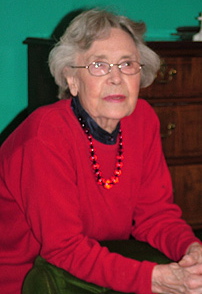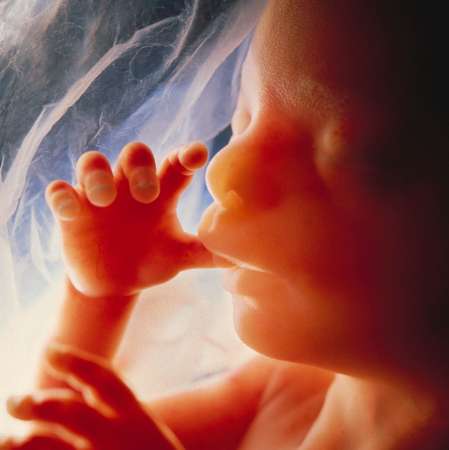I’m really going to miss the short sharp message: “It’s Phyllis; it’s urgent; ring when you can.” It was always urgent and it always elicited a response as soon as I could.
Invariably she would be calling about the latest issue to vex the pro life movement’s most assiduous campaigner: an MP was proposing the further liberalisation of our abortion laws; a report highlighting new evidence on the physical or psychological effects of abortion on women; a Select Committee recommending more experiments on human embryos and animal-human hybrids; or Dutch-style euthanasia laws being wished upon us by a member of the House of Lords.
For Phyllis Bowman there was always one more battle to be fought; one more life to save; one more mind to change; one more letter to send; one more volunteer to encourage; one more campaign to plan.
This week’s news of Phyllis’ death was not unexpected. She has been ailing for quite some time. And our thoughts now will be with Jerry – her beloved husband.
But even up until the last couple of weeks of her life she had been dictating letters from her hospital bed and giving Right to Life – which she founded in 2003 – its instructions and marching orders. Reliant on her oxygen machine, telephone conversations would be interrupted as she inhaled, caught breath, and proceeded with what she had been saying.
Jewish by birth, the then agnostic Phyllis was initially in favour of abortion. But when she saw its effects on women and their unborn children she changed her mind. Later she became a Catholic – and every day would be interrupted by her recitation of the Angelus and by knocking on the door of heaven with her novenas and prayers for the unborn.
One or the more amusing memories I recall was when we went to see the late Robert Maxwell, owner of The Daily Mirror, to protest at one-sided coverage. Before he joined us, Phyllis, herself a onetime Fleet Street journalist, took the precaution of sprinkling the place with holy water which emerged from her handbag.
Phyllis Bowman DSG – Dame of St. Gregory – is one of a band or remarkable women who will always be celebrated for their causes: Elizabeth Fry, Cicely Saunders, Florence Nightingale, Dorothy Day, Mother Teresa and Sue Ryder all spring to mind.
As the prolife movement’s supreme protagonist and organiser for half a century she also had much in common with Emmeline Pankhurst.
Listening to Pankhurst describe her first visit to a workhouse in Manchester you can hear the same sense of indignation at the crushing of human dignity debasement of life which would pour forth from an angry Phyllis Bowman:
“The first time I went into the place I was horrified to see little girls seven and eight years old on their knees scrubbing the cold stones of the long corridors…the babies are very badly protected … These poor, unprotected mothers and their babies I am sure were potent factors in my education as a militant.”
The potent factors in Phyllis Bowman’s education were the industrial scale abortion of babies which followed the enactment of the Steel Bill, the 1967 Abortion Act.
For years Phyllis Bowman has argued that successive Governments have refused to look at the effects of contraceptive pills and abortion on women’s health; at the physical and psychological damage caused by abortion and possible links to cancer. Above all she hated the cover up.
These are taboo subjects for Health Ministers and powerful vested interests in the reproductive rights lobby and pharmaceutical industry have dominated the debate.
Beyond the concealment are the dreadful things we do know and which should stir our consciences as they stirred hers:
On the very day Phyllis died, reports emerged from South Korea that customs officials had discovered thousands of pills filled with powdered human baby flesh; news from China about Chen Guangchen, the blind human activist, who served 4 years in prison for exposing the forced abortion of 130,000 women; while reports from the UK revealed shocking new statistics about the number of IVF babies who are born with disabilities – from a country which permits 600 abortions daily and the abortion of disabled babies up to birth.
Ever prescient, months ago Phyllis Bowman wrote:
“Although we know that the incidence of disability is higher in IVF babies, no research has ever been conducted to find out what other consequences there might be: it could be generations before we find out anything. The powers that be have never bothered to do any long-term investigations.”
She was withering, too, about the hype generated about cures for every ailment known to man which, all dependent on the sacrifice of millions of human embryos:
“The very reason the scientific world wanted to get its hands on embryonic human beings was to cannibalise them. Their claims of miracle cures became more and more extravagant in order to blind the public. Newspapers and politicians lapped up their stories without ever checking the facts.”
Phyllis the former journalist was disdainful of sloppy reporting and contemptuous of those who manipulated frightened or sick people with distorted claims. Ever vigilant in hammering home the truth she deployed encyclopaedic knowledge of what had gone before. As Parliament legislated to permit the creation of animal-human hybrid embryos she remarked:
“Even today, the scientists involved in embryo production make exactly the same promises: their work will find cures for the incurable. Yet, in the last 23 years, the relentless and destructive experiments on human embryos have produced not one treatment or cure of any disease.”
Pointing out that the cures are coming from adult stem cells, she said: “stem cells developed from adult skin or other tissue or from umbilical cord blood can all be done without any controversy or any form of abusive treatment of human life.”
She was also passionate about Parliament itself – and understood politics. She was spot on is identifying the drift towards new euthanasia laws being introduced by stealth, not by Parliament, but by the judiciary:
“We have to be quite clear. We are facing a constitutional crisis: the judiciary seeking to take over from the legislature. It is not only a matter of euthanasia it is a question of whether Parliament will sit back and let the judiciary trample over the primacy of Parliament.”
Phyllis Bowman took a lot of hits over the years. This diminutive figure appeared frail but was made of steel. In 1979, after my election to Parliament she told me how four years earlier, when James White had challenged the abortion laws her office was broken into several times and “we had to take turns of sleeping on the office floor to protect our equipment throughout the summer months, because we were broken into so often.”
On another occasion – during the debates on the Enoch Powell Bill on Embryo Research “we had our office smashed up so badly that the BBC actually made it the first item on their evening news programme.”
It’s no secret that almost since the start there have been serious divisions within the pro life movement. At times it broke her heart – and her language could be choice and often unprintable when it came to those she held responsible for the divisions!
The best memorial to Phyllis Bowman’s memory would be for the rising generation to build on her considerable legacy and to make the right to life the supreme question of the times.
And we’re now going to have a friend in high places. May she Rest In Peace.
—————————————————————————————————————————-
One of the new generation of pro life activists, Robert Colquhoun, interviewed Phyllis last year. To hear the interview go to:
http://loveundefiled.blogspot.co.uk/2011/01/interview-with-phyllis-bowman-of-right.html <a title=
<a title=
http://www.thecatholicuniverse.com/news/50-uk-and-ireland/1578-death-of-pro-life-campaigner-phyllis-bowman
http://www.catholicherald.co.uk/news/2012/05/07/campaigner-who-led-struggle-against-abortion-for-over-40-years-dies-aged-85/
Questions about the number of children in Sudan who are (1) affected by malnutrition, and (2) no longer in education, due to the war; and about the percentage of UK aid to Sudan that (1) reaches recipients via emergency response rooms, and (2) supports emergency response rooms.
Lord Collins of Highbury, the Foreign,...

